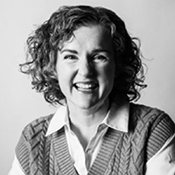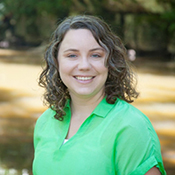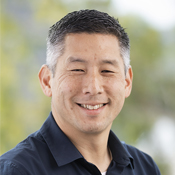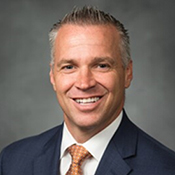Featured Speakers
Welcome Plenary Address - Introducing Positron, a Next-Generation IDE for Data Science

Julia Silge, Posit PBC
Julia Silge is a data scientist and engineering manager at Posit PBC, where she leads a team of developers building fluent, cohesive open-source software for data science in R and Python. She is a tool builder, author, international keynote speaker, and real-world data science practitioner. She holds a PhD in astrophysics and has written books with her collaborators about text mining, supervised machine learning for text, and modeling with tidy data principles.
Panel—Artificial Intelligence and Large Language Models (AI-LLMs): What Is the Impact on Students’ Statistical Education and Research?

Judith Canner, California State University, Monterey Bay
Judith E. Canner is a professor of statistics in the department of mathematics and statistics at California State University Monterey Bay, where she established the statistics and data science minors and is also the program coordinator for the statistics BS program. In addition to her focus on the growth of the statistics and data science program, she is the co-PI on a National Science Foundation S-STEM grant to support scholarships for statistics and data science undergraduates, the CA Learning Lab Grant to build faculty development groups in data science, and an NSF iUSE grant to research equitable pair programming pedagogy in the data science classroom. Though her research focuses on statistics and data science education, she has consulted on projects in kinesiology, psychology, health education, and cancer biology. Canner has won several CSU system-wide awards for her leadership and teaching. She has also served in leadership roles on committees for the Mathematical Association of America and CAUSE focused on statistics and data science education and is a founding board member of the CA Alliance for Data Science Education.

Jimmy Doi, California Polytechnic State University, San Luis Obispo
Born and raised in Southern California, Jimmy Doi earned his BA in math from California State University, Northridge. He later earned his master’s and PhD in statistics from the department of statistics at North Carolina State University. After graduation, he became a faculty member in the department of statistics at California Polytechnic State University, San Luis Obispo. His research interests include categorical data analysis and statistics education. Recently, he worked with university and high school educators in Japan on a variety of curricular topics, including active learning and simulation-based statistical inference.

Karl Pazdernik, Pacific Northwest National Laboratory
Dr. Karl Pazdernik is a Chief Data Scientist within the National Security Directorate at Pacific Northwest National Laboratory (PNNL), a team lead within the artificial intelligence and data analytics division at PNNL, and a research assistant professor at North Carolina State University. His research has focused on the uncertainty quantification and dynamic modeling of multi-modal data with a focus on text analytics, spatial statistics, pattern recognition, and anomaly detection. He earned a BA in mathematics from Saint John’s University and a PhD in statistics from Iowa State University.
Friday Plenary Address – Leadership Through a Stochastic Lens

C. Shane Reese, Brigham Young University
C. Shane Reese began his tenure as the 14th president of Brigham Young University in 2023. Prior to his appointment, he served as BYU academic vice president from 2019–2023 and dean of the BYU College of Physical and Mathematical Sciences from 2017–2019. Reese also serves as a member of the department of statistics faculty and is an American Statistical Association Fellow. Reese’s research has centered on Bayesian hierarchical models and Bayesian optimal experimental designs. He has created statistical models addressing a range of issues, from predicting the power of solar storms to determining the safest method for destroying chemical weapons to assessing climate impact on glaciers in high mountain Asia and Antarctica. His work has also been used by the US Olympic Volleyball Team and National Football League’s Philadelphia Eagles.

